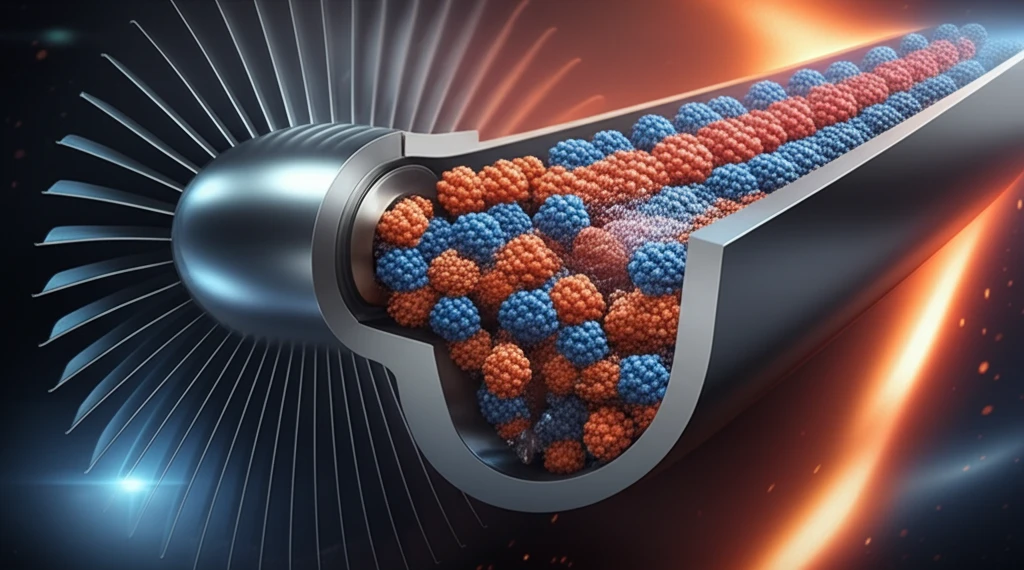
Fracture-Resistant Coatings: How Functionally Graded Materials Protect Surfaces
"Explore the innovative world of functionally graded materials (FGMs) and how they are revolutionizing thermal barrier coatings to prevent fractures and extend the lifespan of critical components."
In industries like aerospace, power generation, and beyond, the quest for materials that can withstand extreme conditions is relentless. High temperatures, abrupt temperature changes, and aggressive environments can lead to cracking, melting, and ultimately, failure of critical components. This is where thermal barrier coatings (TBCs) come into play, acting as a shield against these destructive forces.
Traditional TBCs often involve ceramic layers, known for their low thermal conductivity but also for their brittleness. The difference in thermal expansion between these ceramic coatings and the underlying substrate can create high thermal stresses, leading to cracking and debonding. To combat this, researchers have turned to functionally graded materials (FGMs), an innovative approach that promises to revolutionize the performance and durability of TBCs.
Functionally graded materials are a special class of composites where the properties change gradually across the material. By carefully tailoring the composition and structure, FGMs can minimize stress concentrations and enhance the overall resistance to fracture. This article delves into the world of FGMs, exploring the models, methods, and analyses used to understand and optimize their performance as thermal barrier coatings.
What Are Functionally Graded Materials (FGMs)?

Imagine a material that seamlessly transitions from one set of properties to another. That's the essence of functionally graded materials (FGMs). Unlike traditional composites with distinct interfaces, FGMs exhibit a continuous variation in composition and microstructure, resulting in a gradient of properties. This gradient can be tailored to meet specific performance requirements, making FGMs ideal for demanding applications.
- Composition Gradient: The chemical composition changes gradually across the material.
- Microstructural Gradient: The microstructure, such as grain size and phase distribution, varies continuously.
- Property Gradient: Mechanical, thermal, and other properties change smoothly, avoiding abrupt interfaces.
- Reduced Stress Concentrations: Gradients minimize stress build-up, enhancing fracture resistance.
- Customizable Performance: Properties can be tailored for specific application requirements.
The Future of Fracture-Resistant Coatings
Functionally graded materials represent a significant step forward in the design of thermal barrier coatings. By carefully controlling the material composition and microstructure, engineers can create coatings that are more resistant to fracture, more durable, and better suited to extreme environments. As research continues and manufacturing techniques advance, FGMs are poised to play an increasingly important role in a wide range of industries, from aerospace and power generation to automotive and biomedical engineering. The ongoing exploration of crack models and material behaviors will further refine the design and application of these vital protective systems.
